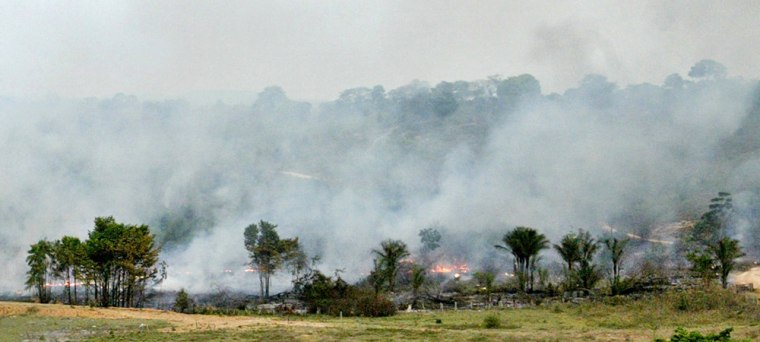Last year was the fourth warmest since recordkeeping began in the 1880s and 2005 could go down as the warmest ever recorded, NASA scientists reported in a new analysis of temperature data.
“There has been a strong warming trend over the past 30 years, a trend that has been shown to be due primarily to increasing greenhouse gases in the atmosphere,” said James Hansen of NASA’s Goddard Institute for Space Studies, based in New York.
The most common greenhouse gas emitted by human activity is carbon dioxide. The burning of fossil fuels and trees, both of which store carbon, have added CO2 emissions to Earth's natural levels.
Hansen and NASA colleague Makiko Sato noted that two additional factors are expected to play into 2005 temperatures. One is the presence of El Nino, when warm water spreads over much of the tropical Pacific Ocean.
The other, they said, is that the Earth’s surface now absorbs more of the sun’s energy than gets reflected back to space.
"The Earth is now out of energy balance," Hansen and Sato wrote. "One result of this imbalance is that it makes it likely that global temperature in 2005, aided also by a weak El Nino, will exceed those of 2003 and 2004 and perhaps even the temperature of 1998, which had stood out far above the temperature of any year in the preceding century."
Last year was the the fourth-warmest on record, with a global mean temperature of 57 degrees Fahrenheit. That's about 1.5 degrees warmer than the middle of the century, said NASA scientist Drew Shindell.
Average temperatures taken from land and surfaces of the oceans showed 2004 was 0.86 degrees Fahrenheit above the average temperature from 1951 to 1980, according to Hansen and Sato.
The spike in global temperatures in 1998 was associated with one of the strongest El Ninos of recent centuries and a weak El Nino contributed to the unusually high global temperatures in 2002 and 2003, NASA said.
The U.S. National Oceanic and Atmospheric Administration said on Thursday the current weak El Nino will diminish and end during the next three months.
